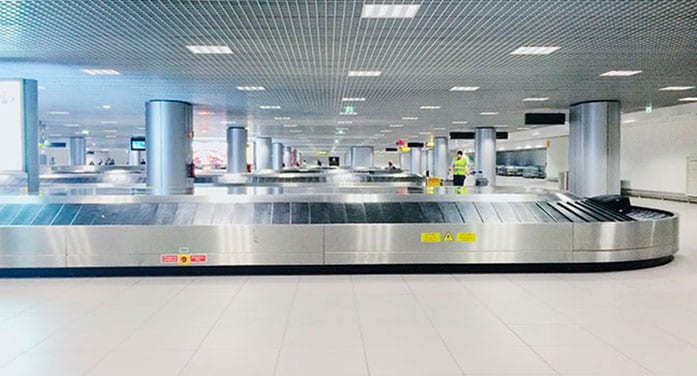 The COVID-19 pandemic has revealed more than ever that those who trade freedom for security can’t stand people preferring the former. By ignoring rules they force onto others, such as travel restrictions, politicians reveal the primary goal was power all along, not safety.
The COVID-19 pandemic has revealed more than ever that those who trade freedom for security can’t stand people preferring the former. By ignoring rules they force onto others, such as travel restrictions, politicians reveal the primary goal was power all along, not safety.
Earlier this year, Canadian Prime Minister Justin Trudeau instituted additional travel restrictions for Canadians and more restrictions are expected in the near future. During a Jan. 26 briefing, he told Canadians to cancel any trips they may have booked. On Jan. 29, Trudeau elaborated and introduced isolation mandates at each traveller’s expense ($2,000), in addition to a blanket cancellation of flights to Mexico and the Caribbean.
Trudeau argued that the number of COVID-19 cases associated with travelling abroad was low, but “one case is too many.”
Implementing travel restrictions in the early stages of the pandemic did play an important role in preventing larger infection spillovers across countries. Some research suggested countries that delayed shutting their borders to air travel had higher infection rates.
The problem is the shifting goalpost of “flattening the curve” for a few weeks to now having been locked down for an entire year. This is neither feasible nor sustainable. Crippling airlines, destroying the tourism industry, causing mass layoffs and unemployment, and propelling people into poverty and depression is more than we bargained for.
Considering that the Public Health Agency of Canada has reported that travel abroad accounts for a mere 1.4 per cent of COVID cases since the beginning of the pandemic, the sacrifices are too great to bear.
The longer it takes for travel restrictions to be lifted, the larger the impact will be. In 2019, tourism activities sustained about 750,000 jobs. According to Statistics Canada’s Labour Force Survey, total paid employment in the tourism industry for April and May 2020 declined by almost 60 per cent from 2019 levels and has led to significant losses in other industries.
Economist Friedrich Hayek once warned of emergency interventionism, describing it as “sticky.” Once politicians gain more power, they’re reluctant to let it go. A society that sacrifices liberty for security slowly submits itself to authoritarian control.
Mike McNaney, president and CEO of the National Airlines Council of Canada, has pointed out a problematic habit in aviation: once a regulation is put into place, it never leaves. One need only look at how drastically air travel has changed since 9/11 to imagine the kind of undesirable, permanent restructuring likely to commence as part of the COVID-19 new normal.
The loss of air-transport links is continuing to devastate Canada’s small regional economies. As airlines reduced flights, supply chains became disconnected, businesses lost clients and cities reliant on tourism have seen tax revenue evaporate.
Government support can only do so much. Air Canada has already received more than $400 million for a wage subsidy. Meanwhile, Canada’s budget deficit has reached an unprecedented level, and the Bank of Canada continues to print money.
The infuriating irony of this situation is that politicians who seek to control our lives don’t follow their own advice. Canadians have realized that we are not “all in this together,” as the political pageantry would have us believe.
Politicians shut down our economy, closed our businesses and forced us to spend the holidays in isolation away from our families – only to patronize businesses abroad and enjoy vacation time with their families. There’s a running joke that the reason Canadian politicos told us to avoid travel was so we wouldn’t run into them at the airport.
The economic cost of travel restrictions outweighs any purported benefit. If politicians can self-govern and decide the degree of risk for themselves and their families, why can’t we?
Arnold Barnett, a professor of statistics at the Massachusetts Institute of Technology, calculated the risk of catching COVID-19 on a full flight: one in 4,300 if you’re seated next to someone. The odds drop to one in 7,700 if the middle seat is empty.
Many Canadians have welcomed the restriction of their mobility beyond what’s reasonable. We have become too risk-averse and have readily accepted intrusions into more aspects of our lives. However, attempting to mitigate all risks is a fool’s errand.
We’re more likely to die in a car crash than from a COVID-19 infection, yet we willingly get in our cars every day and go on with our lives. Jeffrey Rosenthal, a University of Toronto statistics professor, explains that individuals fear unexpected dangers more than is justified.
The way out of this mess is to realize that we can never be completely safe and to factor in opportunity costs. If we continue to blindly follow orders from economically illiterate and power-hungry politicians, the only place we will be travelling is on the road to serfdom.
Caitlin Rose Morgante is a research associate with the Frontier Centre for Public Policy.
Caitlin Rose is one of our Thought Leaders. For interview requests, click here.
The views, opinions and positions expressed by columnists and contributors are the authors’ alone. They do not inherently or expressly reflect the views, opinions and/or positions of our publication.

